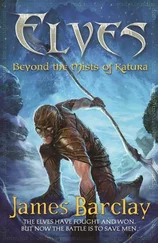“Jest kind of figgerin’ how much I’d have left after I’d got my fine paid,” he grinned. “You say you hain’t a-goin’ to jine up agin?”
“I said maybe I would, an’ maybe I wouldn’t.”
“Accordin’ if you could find somethin’ to do, that was a lot easier an’ had some real money into it, eh?”
“Well, they ain’t no reason I should stay in the Service if I seen where I could do better somewheres else.”
“That’s sensible,” agreed Nixon, “that’s jest what I was thinkin’. Bacon’s ready—drink up.”
The two drained their cups, and Nixon divided the bacon, and refilled the cups with tea. “Yup,” he repeated, “I was thinkin’ jest that same thing. Now, you listen to me a minute. I hain’t offerin’ no bribe, nor nothin’ like that. Mebbe, I hain’t even talkin’ about you an’ me. But, we’ll say it’s a case like this: There’s a feller with twenty-five years’ experience in the country that get’s nabbed by a Constable of the Mounted. He’s got around fifty gallon in his batch. This here Constable takes him in, and it costs the trader five hundred dollars fine, which he pays it, an’ gits back to work. It hain’t but a little while till he’s back with another batch, an’ this time he don’t git caught. He gits red of it, an’ is on easy street. The Constable, what does he git? He gits his wages, which they don’t run no more in a year’s time than the trader paid fer his fine. But, he’d of draw’d his wages anyhow, whether he fetched in the trader or not. He could fix up his report to show why he didn’t bring him in. Or, if he jest happen to run onto him, he don’t say nothin’ about it in the report. In such a case what does the trader do? He jest as soon pay the five hundred dollars to the Constable as to pay it to the jedge—an’ a dam’ sight ruther. I’d sooner see you have it than the Gov’ment. But, they’s another reason. If the trader gits took in, he loses his batch of hooch, to boot. If he don’t he keeps the licker, an’ the Constable keeps the five hundred. An’ besides which, if this here Constable’s time was soon out, the trader would give him a chanct to throw in with him—even pardners. Y’ understan’, I hain’t offerin’ you no bribe. This here’s jest s’posin’ they was a case like that.”
Crowley nodded. “Sure, that’s all right, Nixon. Maybe this Constable, he’s agreeable to the proposition, an’ he’d jest kind of reach out his hand, like I’m doin’ now?”
“Then, the trader, he’d reach down an’ dig up the five hundred, all counted out, an’ put it in the Constable’s hand—like I’m doin’ now.” Crowley’s fingers grasped the roll of bills, and he crowded them hastily into his pocket. Then, he rose to his feet, and began to make up his pack. “Where you headin’ fer?” he asked, as Nixon watched him.
“Beverly Lake. There’s a bunch of natives fishes up there every summer. Drift by that way when you git lonesome. We got to kind of keep a line on one another.” As he talked, Nixon filled a flat flask, which he handed to the officer. “Here’s a little nip on the trail,” he said, “an’, if you git around Beverly Lake, an’ I hain’t there, you’ll find the stuff cached in under a pile of bresh an’ rocks, one hundred steps south, an’ two hundred steps east of the door of that old log shanty on the south side of the lake, where them two points stick out. Couple of Huskys died in there onct, an’ the rest of ’em is afraid of the place.”
“I know where it’s at,” said Crowley, “an’ now we’re pardners, er will be, soon as I git my discharge, I’ll tell you somethin’ fer yer own good. Do you know Gus Janier?”
“Sure, I know him, the son of a ——! Didn’t he damn near kill me one time over on Slave Lake fer tradin’ a bunch of Injuns out of their fur? An’ not only that, he stoled the fur off’n me an’ give ’em back to the Injuns! What’n hell was it any of his business, if the fools traded their fur fer hooch instead of grub? What’s Gus Janier got to do with—this here?”
“Jest this much,” answered Crowley, “it was him that tipped off this cache to the Inspector, an’ he sent me down to investigate.”
A tirade of abuse against the absent Janier greeted the announcement. “Him an’ that dam’ big dog of his’n, rammin’ around all over the country! You see him one time on the Mackenzie, an’ next time, mebbe it’s over on the Bay! He’s always got good guns, an’ outfit, an’ he’s always puttin’ a crimp in honest men that’s tryin’ to make a livin’!”
“Watch him, that’s all,” answered Crowley, as he returned the hooch-runner’s revolver. “I’ll jest report this cache moved before I got here.”
CHAPTER II – ON BEAR LAKE
Corporal Downey, of the Royal North-West Mounted Police, carefully folded the letter and returned it to the girl that faced him across the little fire. Instead of meeting directly the dark eyes that regarded him steadily, the officer allowed his gaze to linger for a moment upon the three canoes drawn side by side upon the shingle, and then shift to the low-hung sun that showed fiery red across the wind-lashed waters of the lake. Teddy Bye and Bye, one of Irma Boyne’s Indian Guides, returned from the water’s edge, and picking up a light axe, stalked silently into the woods. A moment later the pecking of the axe upon a dry spruce sounded above the muffled roar of the wind.
Finally, the officer spoke, his eyes upon the three Indians who lolled about a smudgy fire a short distance away. “I don’t suppose anything I could say, Miss Boyne, would turn you back. I want to warn you, though, that you are right now headed into the bleakest an’ least known strip of country in Canada—maybe in the world. If there is any worse I don’t want to see it. It’s a mean country for a man to travel, an’ no place at all for a woman.”
The girl smiled, and for the dozenth time in the brief hour since he had met her, the officer found himself completely captivated by that smile. “But I have been in the wilds before, Corporal Downey. With my father—fourteen months in the Andes, searching for the lost mines of the Incas, where we were the first white people many of the Indians had ever seen. And in Tibet we spent nearly two years trying to uncover the supposed sealed mines of C’hi Tgu. Why, I’ve been captured by Chinese pirates and held for three months before I was able to escape, and when I did, I had to find my way across more than a hundred miles of unknown country, before I found my father who, failing to get assistance from the proper authorities, had organized a sort of army of his own from among some wild tribesmen and was scouring the country to find me. Really, you don’t need to feel any concern for my safety. I am not in the least afraid.”
Downey returned the smile: “No, I know you ain’t afraid. If you was afraid, I wouldn’t have found you makin’ yourself to home in a little five-by-seven tent on the north shore of Great Bear Lake. It ain’t a question of bein’ afraid. It’s a question of facts—a question of eatin’, or not eatin’. Game is scarce east of the Coppermine.”
“I know, but we can live on fish if we have to. We have both hooks and nets, and the Indians are good fishermen. If I don’t find my father before late fall, I’ll work north to the coast and winter at Bernard Harbour, or if I get farther east, I can winter at Baker Lake, or at Fullerton.”
Downey nodded: “Yes, you could winter at any of them places providin’ you could get to ’em. Don’t start too late, that’s all. It’s a big country up here, an’ travellin’s slow. You seem to know quite a lot about the country for one who’s never be’n into it, an’ maybe you’ll make it all right. When you come to think about it there really ain’t no reason why a woman couldn’t live up here as handy as a man, only—we ain’t used to ’em tryin’ it.
Читать дальше












